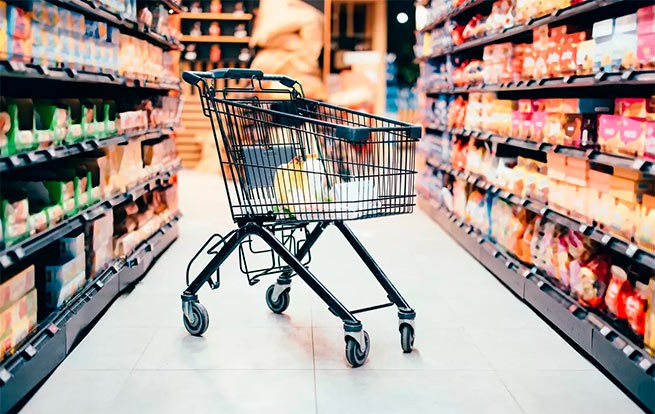Prime Minister Kyriakos Mitsotakis announced price cuts on 1,500 essential goods tomorrow, March 1st. A little later, the Minister of Development spoke about 3,000 goods.
Consumers remain cautious, saying they have heard similar announcements before but have not seen the new prices on supermarket shelves.
Speaking at a Cabinet meeting on Thursday, the Prime Minister noted that “continued action has been taken in recent months to help reduce prices at the retail level, against persistent inflation, particularly on certain types of products.” He stressed that the results of the measures would gradually become clear as they represented “deep structural interventions in the functioning of the market.”
He said: “Initial reports are encouraging and we are hopeful that starting prices for more than 1,500 products will be lower from the start of March, with final prices determined based on these starting prices.”
Shortly after the prime minister’s general statements on an issue that worries much of Greek society, the Ministry of Development issued explanatory reports trying to explain the inexplicable. According to the ministry, “implementation of four new sweeping government measures to combat high prices and stimulate healthy competition throughout the supply chain will begin on Friday, March 1.”
According to a statement from the Ministry of Development, Greece is taking targeted measures, which are being applied for the first time at the European level against price increases. The structural measures outlined by Development Minister Kostas Skrekas demonstrate the government’s determination to implement practical measures that reform the structure of the retail market and correct distorted commercial practices.
The main goal of all relevant government initiatives is the permanent de-escalation of inflation for supermarket products in the interests of the consumer, the ministry added. Referring to the ministry’s press release, mass media report on “four new government measures:
- Reducing supplier discounts to supermarkets and passing benefits on to the consumer through lower list prices.
- The government’s decision to continue the reform, obliging suppliers to reduce their supply to retailers by 30%, with an obligation to reduce list prices by the same amount, led to the reduction of more than 3,000 types of products (1,500 were received by the ministry by 20:15, the time of the start of the Council of Ministers meeting) .
- The categories include general cleaning products (washing powders, dishwashing detergents, cleaning products of all types, bleaches) and personal care products (shampoo and conditioner, shower gels, soaps, toothpastes, baby diapers).
The reform led to a significant reduction in average wholesale prices for seven product categories. In particular, the average price reduction for baby diapers is 18.1%, for shampoos, gels and shower conditioners – 17%, for toothpastes – 15.1%, for washing powders – 15.6%, for dishwashing detergents – 16%, for cleaning products of all types – 15.8% and soaps 12.7%.
The department emphasized that the average price reduction will affect 108 different brands. Unfortunately, they forgot to mention the percentage of price increases for these brands during 2023. Apart from the “30 percent reduction commitment,” no other measure was announced in the new “Bible” of the Ministry of Development.
- Did the Ministry forget to mention the other three measures?
- Was the report/announcement too long for media sites?
- Am I too stupid to understand the government’s vision?
The main thing, however, is that the ministry did not forget to emphasize:
“Greece is taking targeted measures, which are used for the first time at European level against high prices. The structural measures outlined by Development Minister Kostas Skrekas demonstrate the government’s determination to implement practical measures that reform the structure of the retail market and correct distorted commercial practices. The main goal of all relevant government initiatives is the permanent de-escalation of inflation on goods in supermarkets for the benefit of the consumer.”
Consumers are cautious and do not share the government’s enthusiasm. One woman told ANT1: “Let’s first see if there really are discounts on the supermarket shelves, because too often we hear about discounts but don’t see them.”. Another complained that “price reductions are only happening for a certain category of products, with prices for meat, milk, cheese, butter and other essentials remaining high.”
PS It’s also sad that the author hardly uses these 108 brands that are subject to the 30% reduction obligation, but uses all the others that are not affected by the discounts…







More Stories
What to do if attacked by a dog (video)
Greece – a paradise for gourmets
Message from AEK and PAOK fans in defense of Esphigmenou Monastery